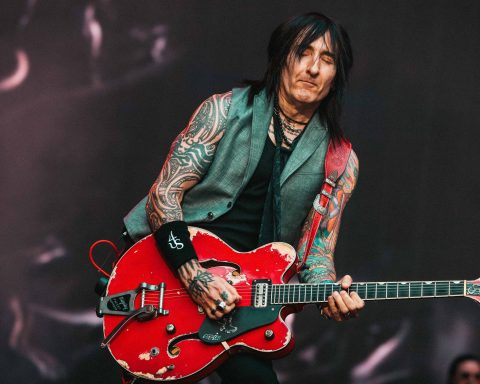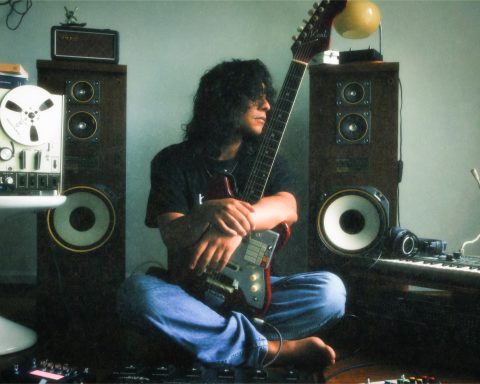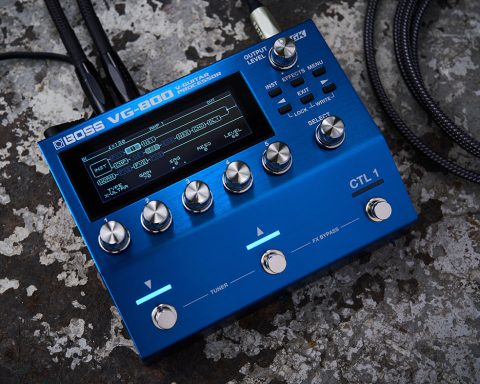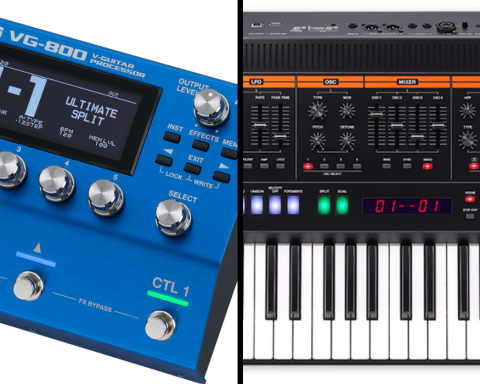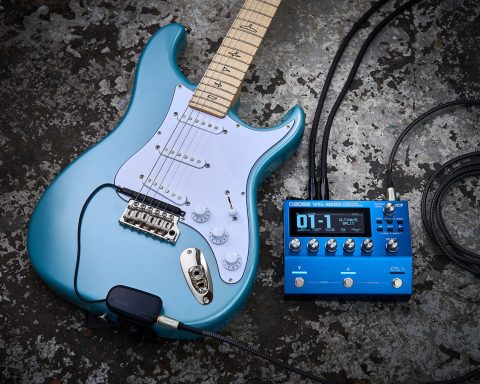Nate Mercereau is redefining what it means to be a guitarist. A devoted student of the instrument, he draws inspiration from albums by acoustic virtuosos like Laurindo Almeida and Andrés Segovia. He also explores the innovative paths that electric pioneers such as Robert Fripp and Allan Holdsworth forged. Like Fripp and Holdsworth before him, Mercereau’s refined fretboard abilities now propel him beyond traditional six-string expression with guitar synthesizers. Central to his creative journey are Roland and BOSS units from across the decades.
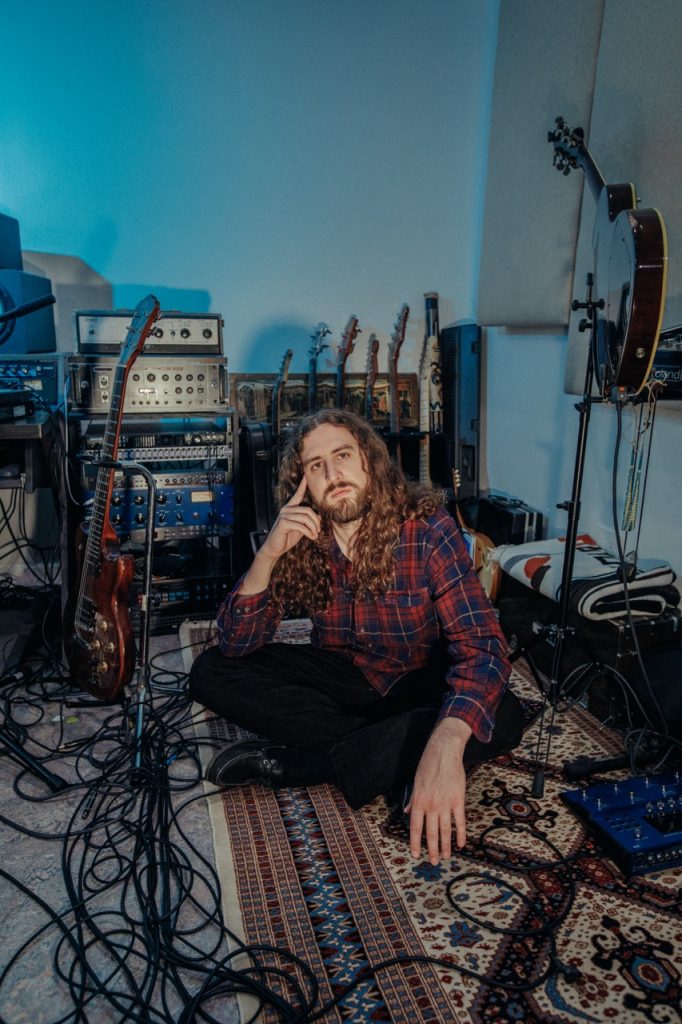
Embracing Creative Possibilities
While immersing himself in the history of guitar synthesizers pioneered by artists like Pat Metheny and Andy Summers, Mercereau’s journey began with the iconic GR-300, released in 1979. He soon acquired the even earlier GR-500 from 1977 before embracing the creative possibilities of more modern digital gear.
Today, his setup centers on the BOSS SY-1000 Guitar Synthesizer, though he has collected and used numerous other BOSS and Roland units over the years. By employing this groundbreaking technology, Mercereau has transcended the conventional role of the guitarist.
As part of Jack White’s esteemed roster at Third Man Records, Mercereau exemplifies the artistic heights a guitarist can reach. His fresh approach to guitar playing combines well-honed fretboard skills with sounds typically reserved for keyboardists. And while he can deliver the classic licks and riffs we all know and love, Mercereau goes far beyond, tapping into a vast, futuristic wellspring of tones waiting to be discovered.
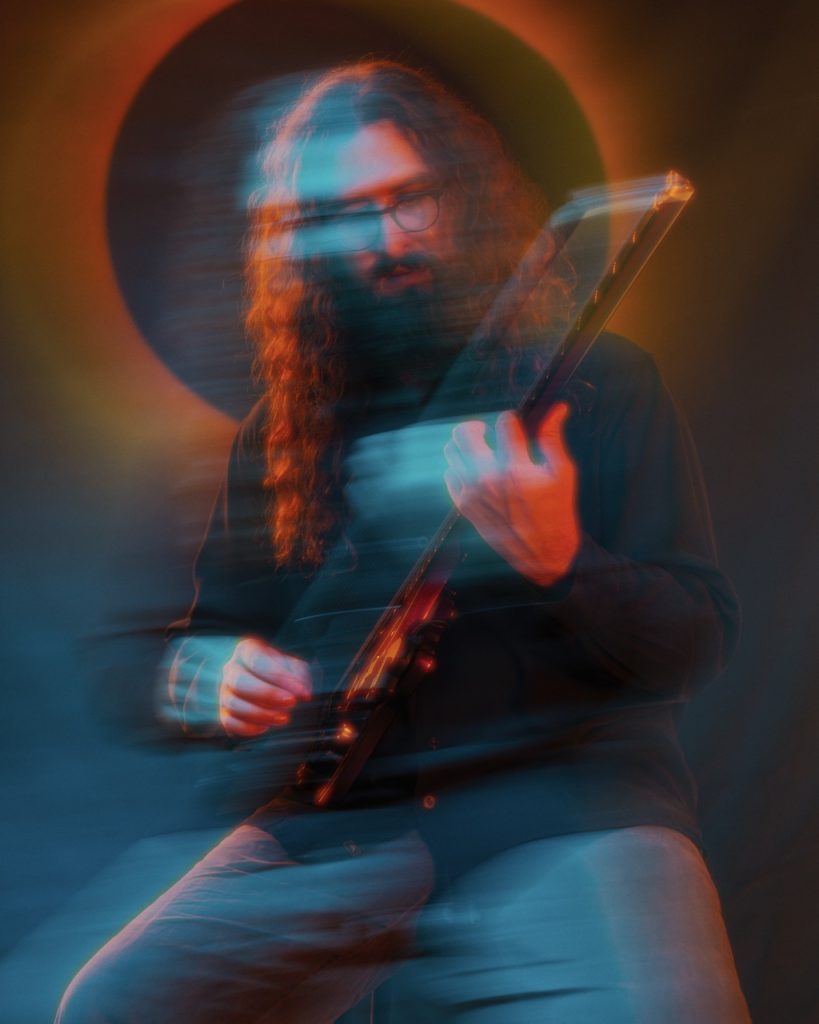
His innovative use of BOSS and Roland guitar synthesizers serves as an inspiration to others, proving that any guitarist can step out of the box with the right gear and a relentless passion for creativity.
“I consider the music as environments—a forest, a city, or some uncreated combination of those elements."
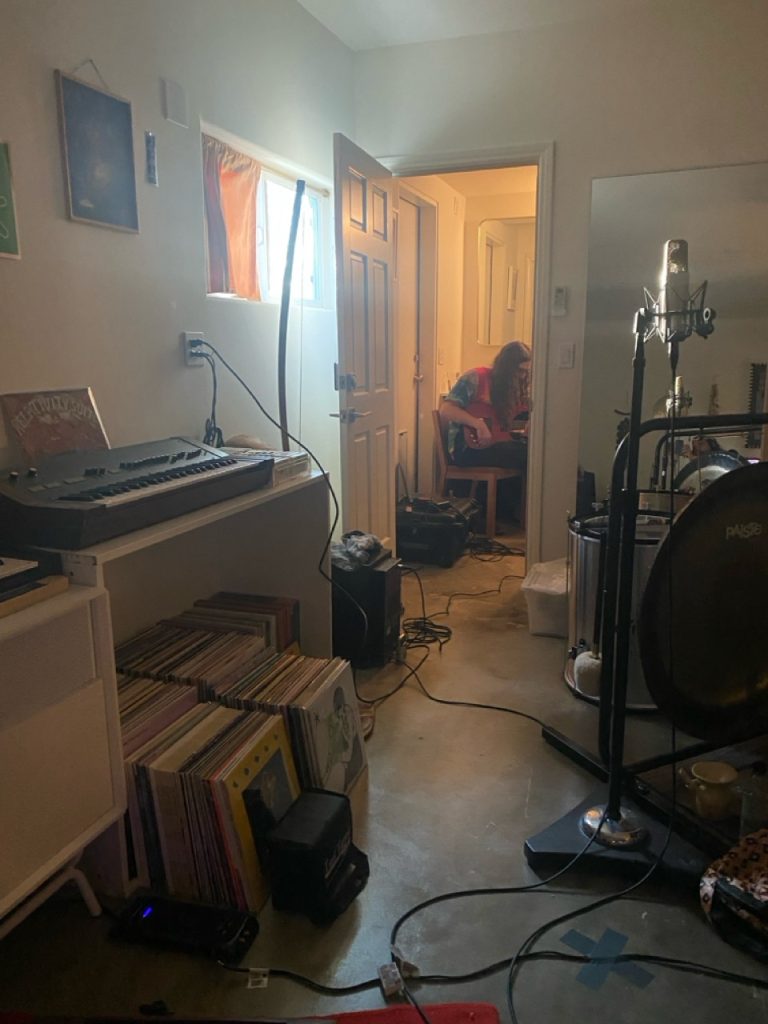
Music as Environment
As an artist at the vanguard of contemporary sound, Mercereau employs the guitar as both a sampler and synth controller, transforming it into a versatile tool for conjuring immersive soundscapes. His new album, Excellent Traveler is mesmerizing. Comprising 17 tracks, it includes titles such as “Excellent Traveler Theme,” “From One Place to Another,” and “Awayness.”
Yet, as far-flung as they sound, these pieces of music all began as samples from Mercereau’s immediate environment. As he calls it: “A living collection of samples interpreted and played with guitar.” It’s a concept best described by the track titles “Sound Within Sound” and “Worlds Upon Worlds.”
Expounding upon his latest release, Mercereau states, “I consider the music as environments—a forest, a city, or some uncreated combination of those elements.” By rearranging time and space through the medium of music, Excellent Traveler emerges as a multidimensional listening odyssey—an experience to discover, investigate, and traverse. It’s also an intimate personal recording that feels vivid and alive. In the artist’s own words, it is “a type of diary, or a moving sonic photo album, representing ‘traveling excellently’—physically, emotionally, dimensionally.”
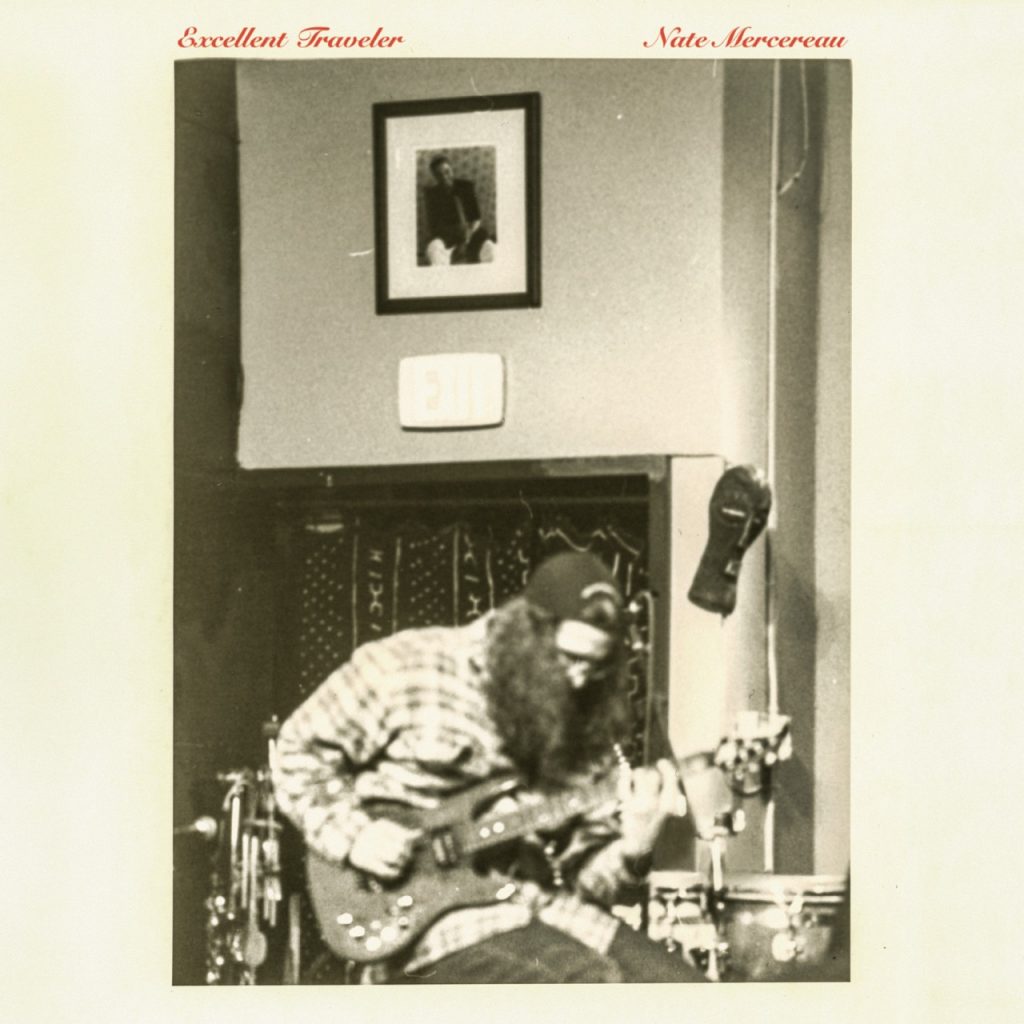
"I point the mic at the band or sound source, and if something happens that I want to capture, I record it."
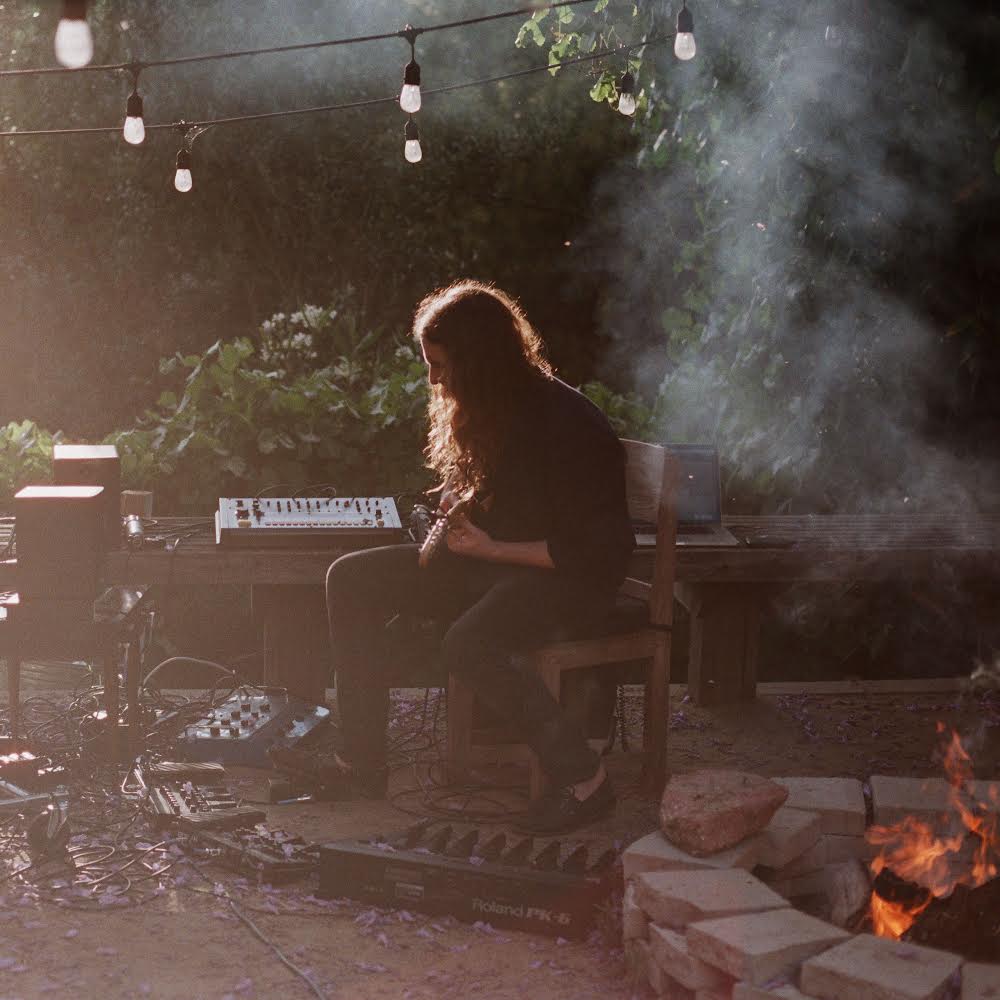
Playing Reality
These recording concepts also carry over into Mercereau’s live performances. In fact, he incorporates a microphone into his stage rig to live-sample his surroundings. “I point the mic at the band or sound source, and if something happens that I want to capture, I record it,” he explains. With the recorded samples mapped across his fretboard, the guitarist can then physically play them. He refers to this technique as “playing reality.”
BOSS spoke with Mercereau after his electrifying concert at the Arlene Schnitzer Hall in Portland, Oregon, where he performed alongside André 3000 to promote the Outkast star’s 2023 debut solo album, New Blue Sun. Impressed by Mercereau’s extraordinary talent, the hip-hop icon dubbed him a “magician,” adding, “He plays guitar, but it almost never sounds like a guitar.”
An Excellent Traveler
What does your live rig look like?
I’m currently between André 3000’s New Blue Sun tour and my own concerts for my new album, Excellent Traveler. It’s almost the same setup, and it’s based on the BOSS SY-1000 Guitar Synthesizer. The SY-1000 is the centerpiece. I also use the MIDI Out from that to control Ableton, so I can play software instruments and do live sampling.
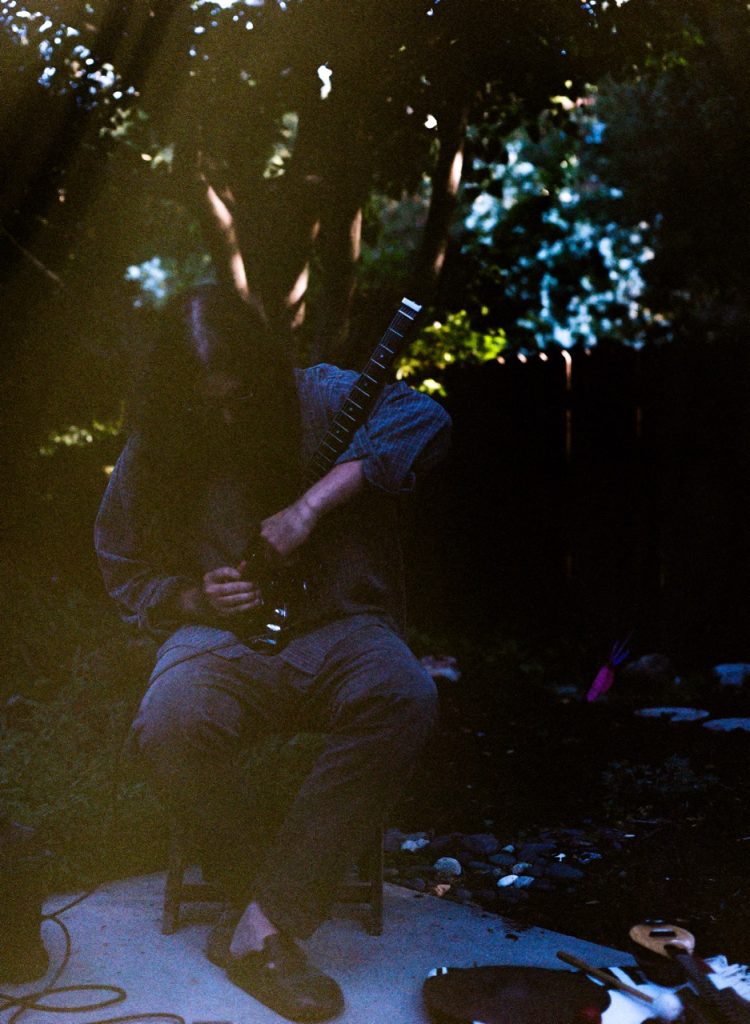
I like incorporating a computer into my setup in a musical way where I’m not following it. Instead, it functions as an incredibly detailed creative tool. It’s like a book of instruments and samples I’ve collected. The BOSS SY-1000 has been really great. I can program my own sounds with it and create original tones I use a lot.
I use a microphone in my setup to record sounds when performing live, either from the band or myself, and during soundchecks, or in environments with my phone or Zoom recorder before a concert. The samples I collect are integrated into the performance; they’re mapped across the guitar fretboard, allowing me to play them like custom instruments tailored for each specific concert.
For example, let’s say André’s playing the flute and Carlos Niño’s playing a cymbal; I can capture a moment of that, drop it into the Ableton sampler, and then play it on the guitar using MIDI. So, even though it’s all guitar-based, it feels like there are new sounds, completely fresh for the moment and always available. That live sampling process is like “playing life” or “playing reality.” It’s a prominent part of my latest creative endeavors.
"The samples I collect are mapped across the fretboard, allowing me to play them."
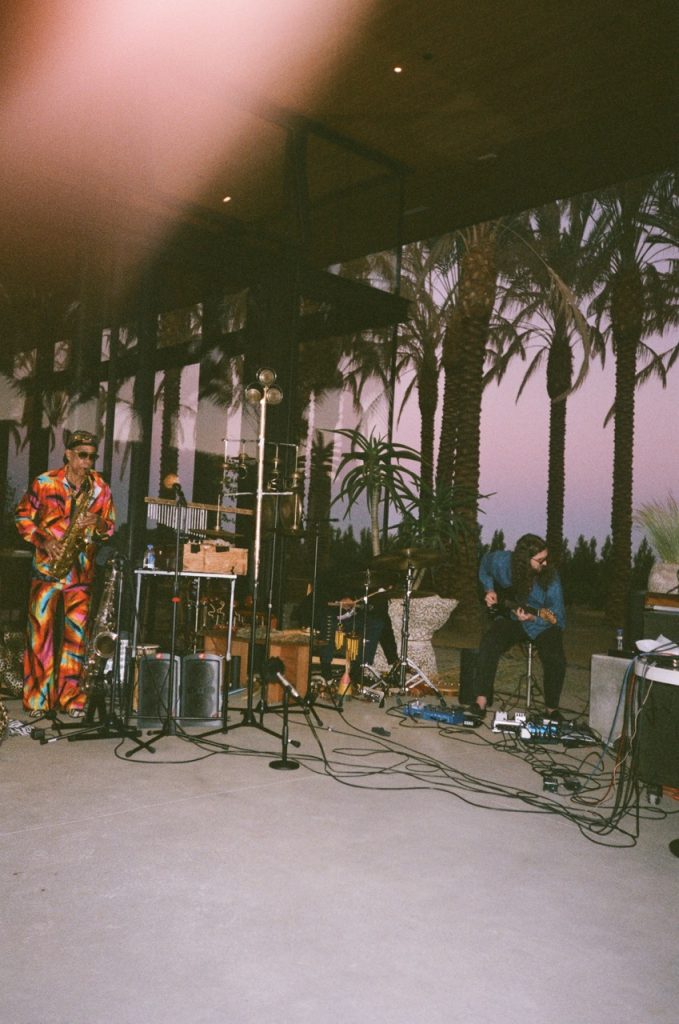
Sampling Tradition
So, would you say your live sampling is a creative feedback loop?
It’s like worlds within worlds. Or worlds upon worlds. Worlds beyond… It’s like creating new possibilities and realities in the moment. We talk about this a lot in the New Blue Sun group, how this process is like an extension of the hip-hop sampling tradition. Live sampling always creates new moments with the group, and it’s interesting for people in the band.
They’ll suddenly start hearing a sample of themselves from something they did earlier in the concert, or maybe even immediately after they did it, but played again, or effected, or manipulated somehow. It’s like I’m playing with them with their own sound or with the sound of the group, creating new waves. It creates a lot of interesting ideas relating to time and how we perceive it.
How does this process relate to your new solo album, Excellent Traveler?
For Excellent Traveler, I wanted to distill that process into a solo guitar album. I thought, “What if I create a guitar-only record that blows the doors off what that all means?” I love solo instrument albums. I love listening to classical guitar records by musicians like Laurindo Almeida and Andrés Segovia or solo flute albums by Paul Horn. I have records of them playing lots of different material, and I thought, “What if there was a new version of that type of album?” So, I set out to make an all-guitar album using live sampling that features all of my world at the same time.
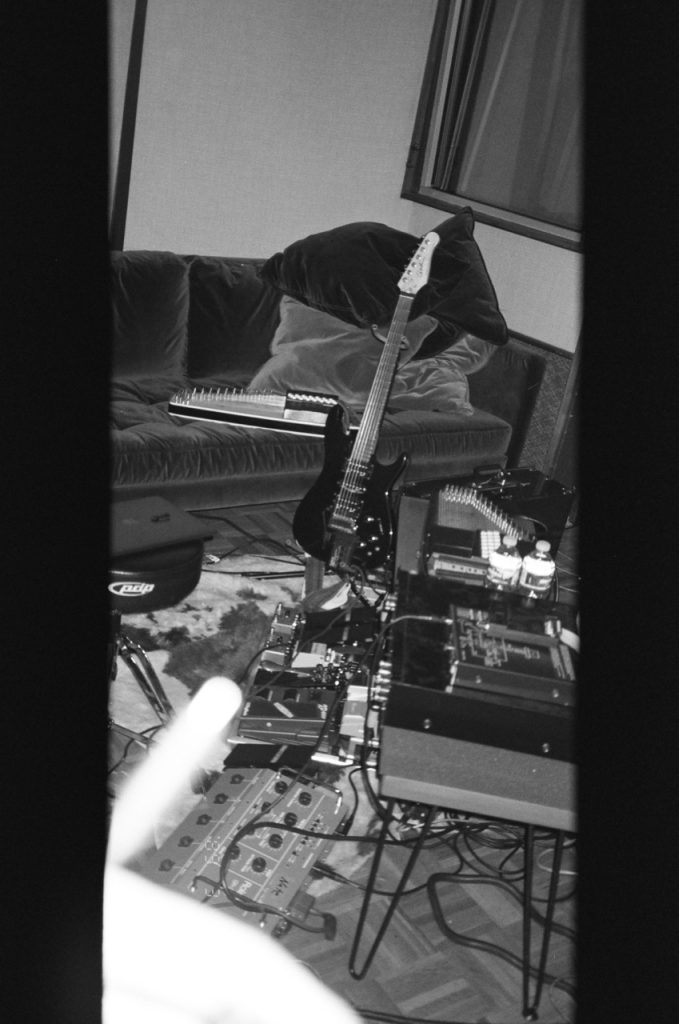
The World of Guitar Synthesizer
Is the guitar synthesizer world still relatively unexplored?
People are becoming more aware of it, but it is still niche. I first got into it from artists like Pat Metheny, and Robert Fripp and Adrian Belew in King Crimson. Those people were the first I was aware of who used Roland guitar synthesizers. Then, I got deeper into it and discovered how John McLaughlin, Terje Rypdal, John Abercrombie, and Allan Holdsworth used them. Going back through guitar synthesizer history has opened me up to a lot of great music.
It was often the forward-thinking guitarists who experimented with guitar synthesizers. There’s always something interesting waiting to be discovered.
Where did your guitar synthesizer journey begin in terms of equipment?
I wanted to start at the beginning, so I got a Roland GR-300 Guitar Synthesizer on Craigslist. Then I got the GR-500. I put my resources into getting all the Guitar Synthesizers I could acquire while making music along the way. A lot of those ended up on records I’ve done, either for myself or for other people as a producer. Through that process, the GR-300 sound became really important for me as a mode of expression. I use a lot of different sounds these days, but the GR-300 sound has always been there. I’ll use either the GR-300 itself or the BOSS SY-1000 to create a GR-300 tone. I also use the Roland GR-20 to get a similar sound.
"Modern guitar synthesizers have become my favorites because the technology has opened up new modes of creation."
Do you find the older guitar synthesizers to be reliable?
Yes, but not enough to risk traveling with them. I have them set up in my studio. I was traveling with the GR-300 for a while, but I was nervous about it, thinking, “If this goes down, it’s going to be like trying to find a needle in a haystack to source another one.” The more modern guitar synthesizers have become my favorites because the technology has opened up new modes of creation.
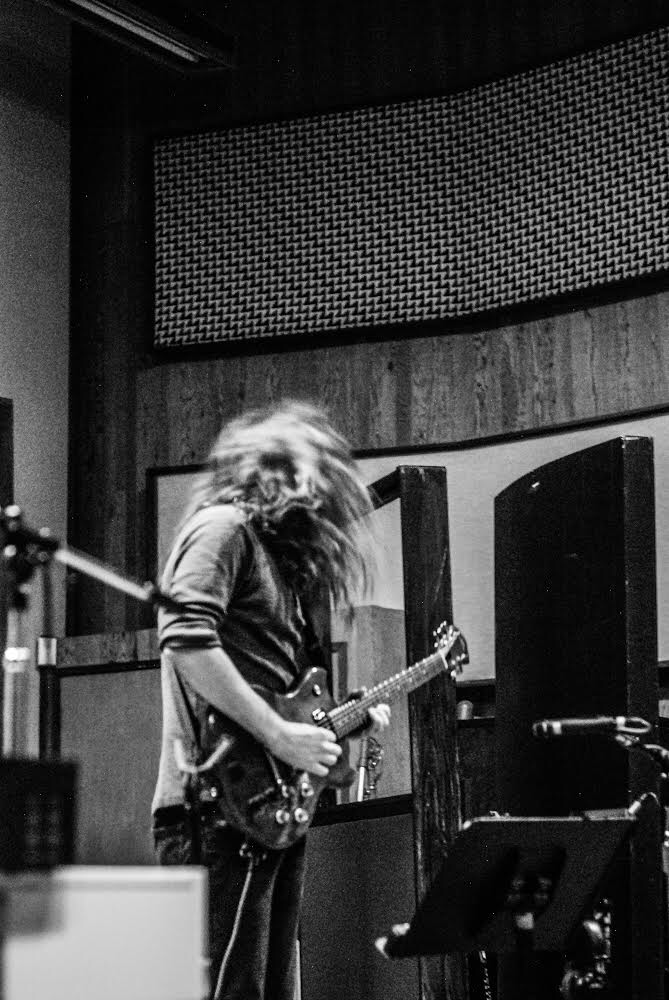
What do you think inspires guitarists to embrace guitar synthesizers?
For me, I felt a traditional guitar setup lacked the sounds I needed to express the fullness of my ideas. When I realized guitar synthesizers could enable me to apply all the energy and effort I’d put into learning guitar, it was pretty obvious how I wanted to go on. I thought, “I’ve got to try this.” When you try the different synths, you find they work differently.
Some of them work closer to a guitar in terms of the way it responds, like the Roland VG-8 V-Guitar System. The GR-300 is also close. It feels more like you’re controlling keyboard sounds when it comes to the GR-20 and stuff with the PCM sounds. They respond a little differently. Having gone through that process, I realized that it’s best to approach each one as its own unique thing. It’s not just about applying traditional guitar technique; I had to open up my whole playing style.
"Slide works really well with guitar synthesizers."
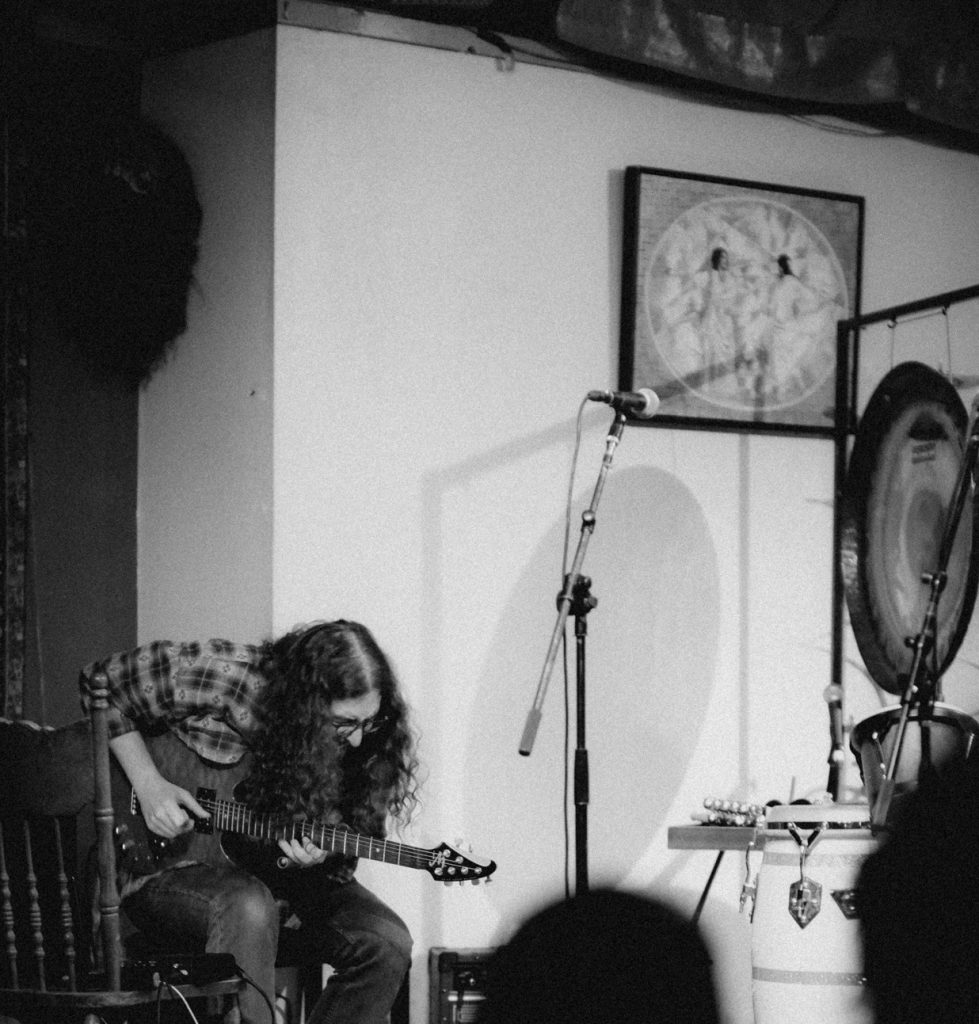
Various Techniques
What guitar techniques do you employ with guitar synthesizers?
I use a slide a lot. Slide works really well with guitar synthesizers. And it’s mega-expressive. I also love using foot pedals to control filter sweeps, which also allows for a lot of expressive, vocal-like sounds. Before I was into Guitar Synthesizers, I was really into using volume pedals to shave off the attack and fade the note in. Steve Howe from Yes would do that a lot.
I went from there to using a foot pedal with the GR-300 to control filter sweeps. You go from this deep, sub-frequency tone and open it up. It’s kind of like a wah, but it doesn’t translate that way. It’s a unique thing. It kind of feels like a volume pedal when you open up the frequencies.
There are various techniques like these that work well, but I approach each sound within the guitar synthesizer as its own instrument. I think keyboard players are familiar with that approach, too. It’s not like, “Let me apply this sound to how I normally play guitar.” The most resonant approach for me is to start with my imagination, my feelings, and my expressive desires. Then, discover what the possibilities are of the available sounds and technology, and figure out how to play it. You know, “How can I express myself best with it? What does the sound do best?” It works both ways. Hearing new sounds can offer you new perspectives as well.
How do you use the sounds of the BOSS SY-1000?
I can program the BOSS SY-1000 in a lot of ways that are exciting to me personally. I’ve built a bank of sounds within that particular Guitar Synthesizer that I can go to at any moment, and I’m continuing to build within it. It’s a mix of coming to the sound with an openness and finding out how you can work with it to make the music you want to make. I try to allow my playing technique to be fluid in order to get the maximum expression available.
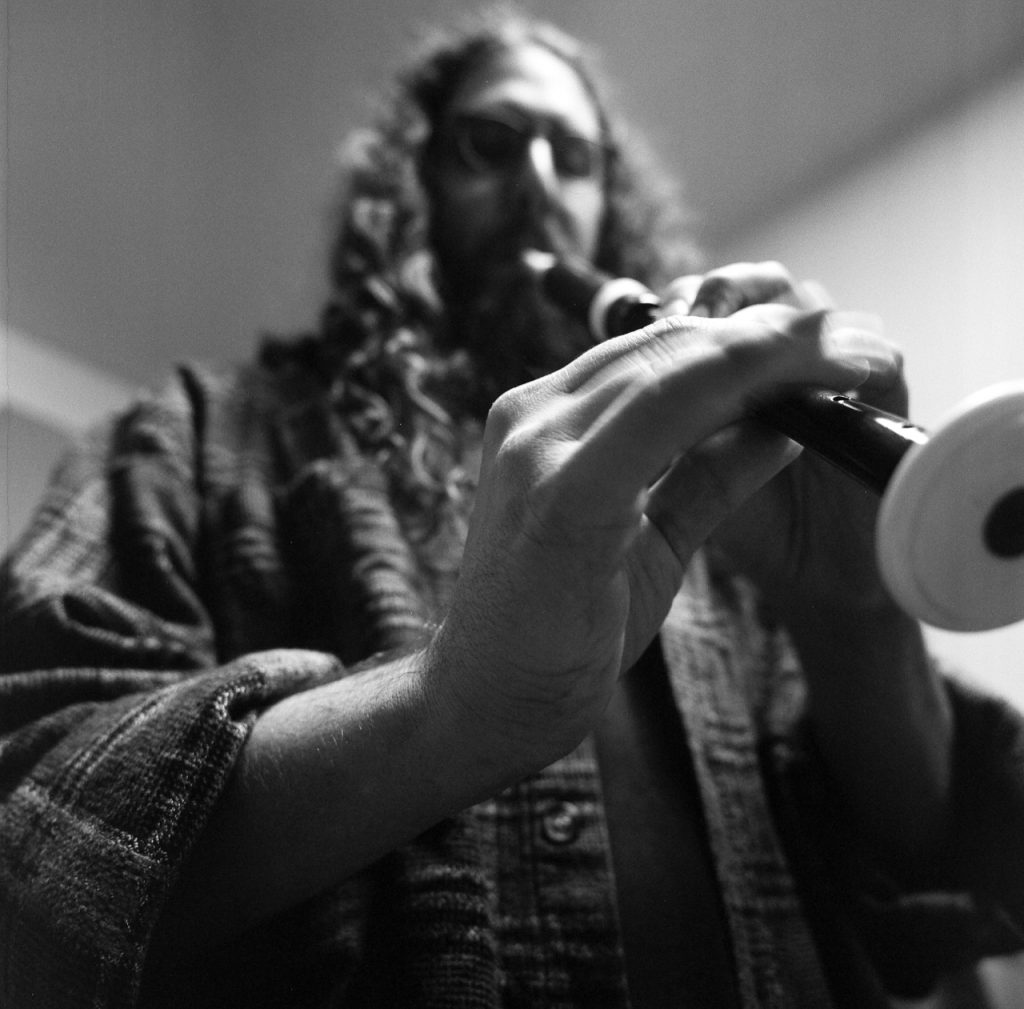
A New Creative Path
Throughout the decades, the creative boundaries of guitar music have been widely explored using traditional rigs. Do you think guitar synthesizers can offer an exciting new creative path for guitarists?
Yeah, definitely. I looked at guitar synthesizers and thought, “Not a massive amount of music has been made with these.” It feels like an open place to just try things. And that’s really interesting to me. I often think of a sound in my mind first and then figure out how to do it. That’s how the Excellent Traveler album came about. I wanted to sample reality and life and play it.
"I often think of a sound in my mind first and then figure out how to do it."
How did you achieve that?
It’s a combination of being tuned into the technology, figuring out what’s possible, and tuning into my surroundings in a new way. It’s a question of figuring out what I want to do and then finding out what’s available to do it.
It originally started with an early Akai sampler, the S612. I was controlling it with the Roland GI-20 GK-MIDI Interface. That’s really what started my sampling journey. And because I didn’t want to travel with large rack-sized gear, I switched over to using a computer.
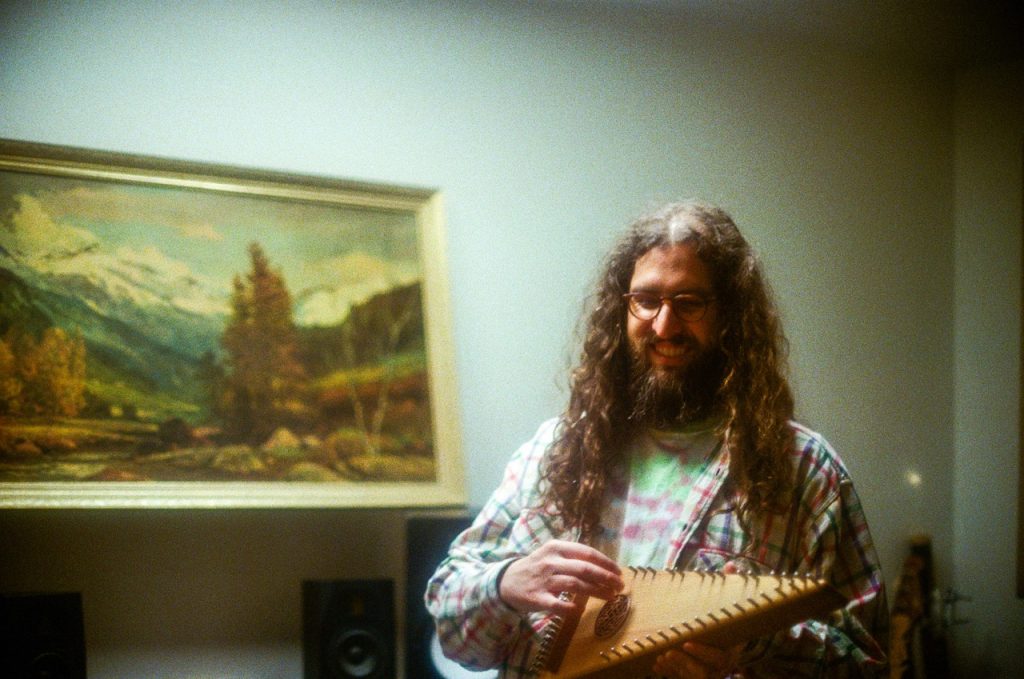
Do you find computers to be reliable on stage?
Yes. It’s been solid. I treat it like an instrument. It doesn’t do anything except run Ableton. I don’t tax it too hard because I want it to respond really well. I keep it lean, and I keep it simple. Ten years ago, I found working with computers to be less reliable. But I know a lot of musicians who have adopted it recently. It’s just part of their rig now because it works great.
To what extent are these performances unique?
We open ourselves up to the possibilities of infinity, so it can completely shift at any moment, and often it does. That level of openness to possibility is really important for me. Not only musically but also as a person on Earth. Sharing creativity is a powerful, meaningful message. It’s important to me to consider where us humans are going.
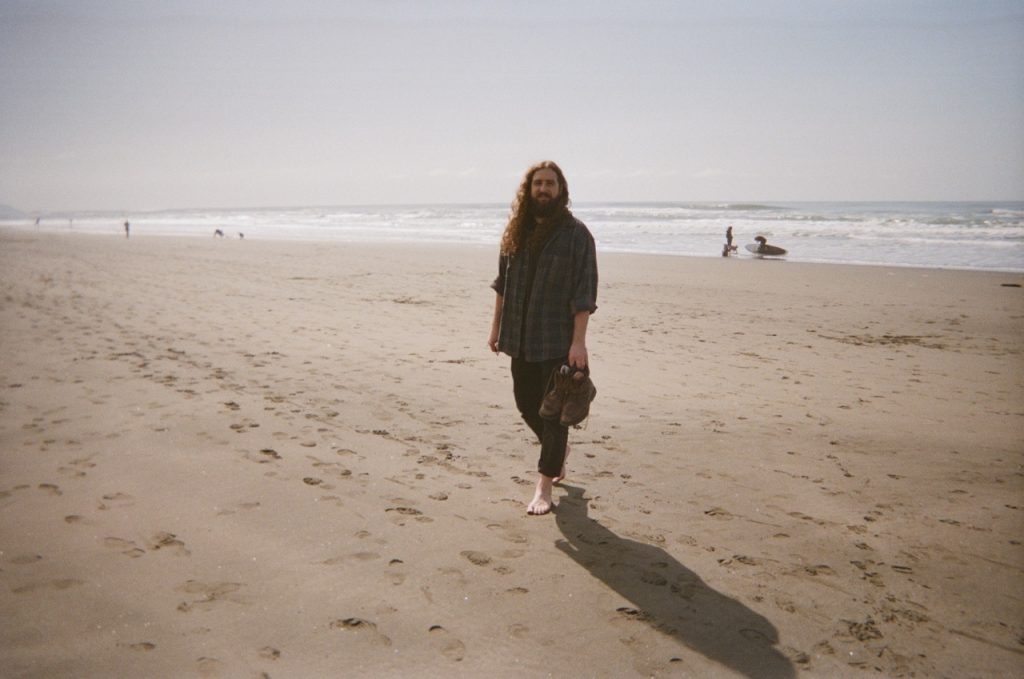
As I say this, I’m thinking about people’s fears and aspirations relating to life on Earth, life beyond Earth, and ‘artificial’ advancements in intelligence. That’s all valid, but I feel that incredible things will happen in the greatest possible reality of the future. I want to be a catalyst for that now. So, discovering and creating moments of possibility and imagination and sharing them feels important. It’s inspiring to me. If I raise my hand and go, “This is how I’m feeling. This is what I see,” maybe it will inspire other people to open themselves up to their version of that.
"Guitarists can be afraid of GK pickups, but I think they look really cool—just put one on your guitar and start exploring."
Commit to Possibilities
How would you recommend fellow guitarists get started in the world of guitar synthesizers?
For some of the Roland and BOSS guitar synthesizers, you’ll need to invest in a GK Divided Pickup and commit an instrument to that setup. I think guitarists can be afraid of GK pickups, but I think they look really cool—just put one on your guitar and start exploring. It’s worth it.
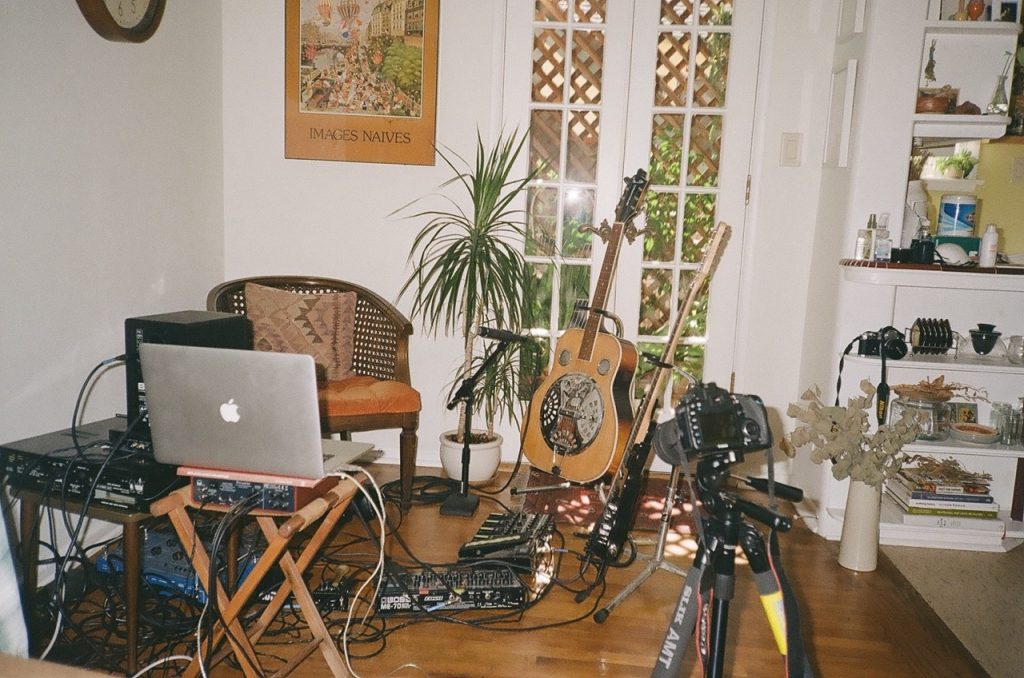
There are so many possibilities using a GK pickup. There is something about the Roland GR-20 Guitar Synthesizer that’s straightforward and cool. When I see the SY-1000, I feel psyched, though I think it might look a bit overwhelming on the surface to a person who is just getting into guitar synthesizers. I would say just dive in headfirst because it’s not hard to use. It’s easy to navigate and get some immediately inspiring sounds.
You can just run whatever synth pedal you want through your guitar rig with your other effects like your delay, reverb, modulation, distortion, whatever you’re running. Think of it as a new foundation of tone you can use alongside and through your other effects.
How do you think guitar synthesizers are transforming the guitarist’s role in a band?
What’s great about the guitar synthesizer is that it changes the sonic space or role you can play within a group or by yourself. Suddenly, you’re not just the guitar player operating in a certain frequency or rhythmic sense.
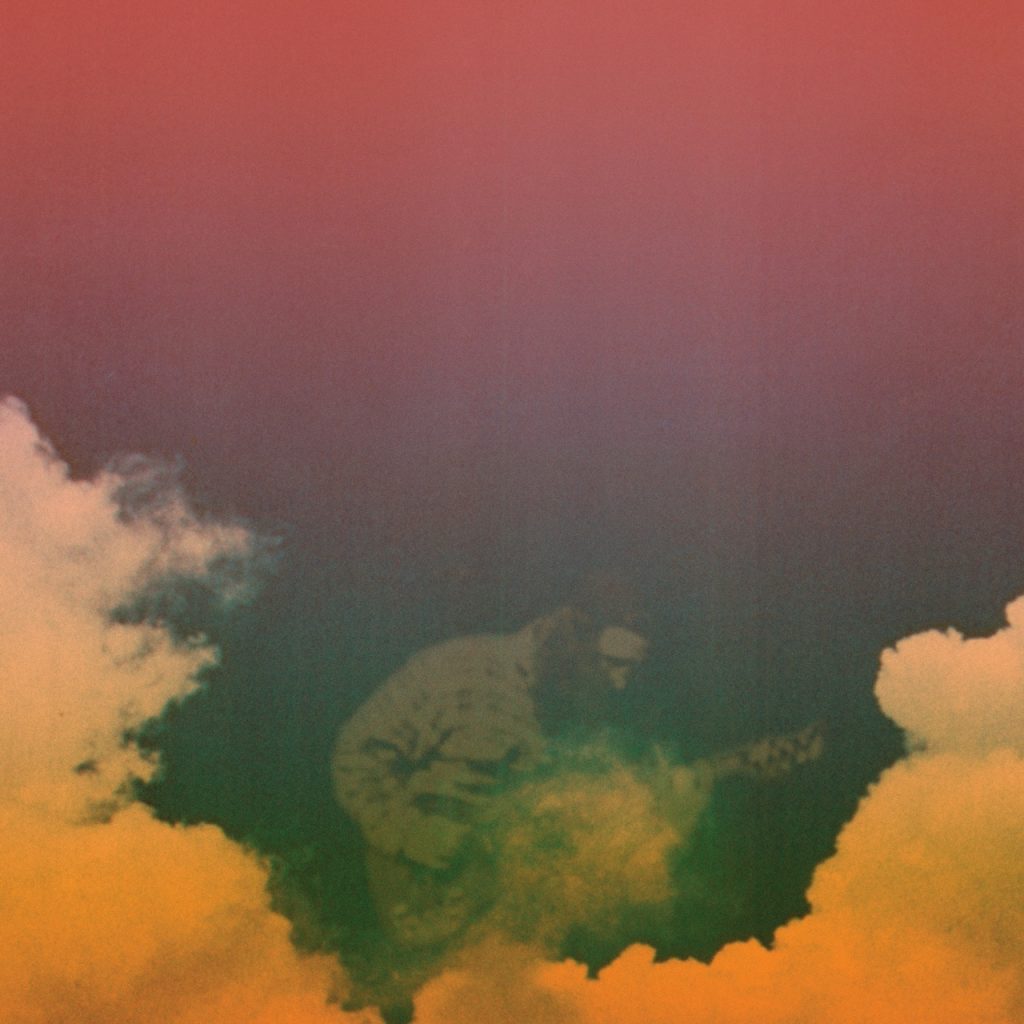
For me, it’s opened up infinite possibilities. In its traditional form, the guitar has a lot of very specific elements, like the percussive sound of the string attack, for example. Even removing the attack and using different reverbs and delays allows the guitar to sound like a different instrument. The space you occupy changes.
Also, with guitar synthesizers, you can layer sounds on top of each other, and suddenly, you start sounding like something else, occupying a much different sonic space. Something like Vangelis or whoever else you’re into that creates a variety of sound by themselves. You can put different sounds and samples on each string with a GK Divided Pickup. So, with that in mind, you can imagine how much your role as a guitar player can change instantly.
"You can put different sounds and samples on each string with a GK Divided Pickup."
Emotions, Presence, and Shared Realities
Which albums would you recommend as the best introduction to your music for our readers?
Excellent Traveler is a clear representation of the solo reality. It’s my most recent and comprehensive version of the approach I’m talking about. SUNDAYS, SUNDAYS EXPANSION, and Ojai Orange Grove Concert have the GR300 and S612 sampler sound worlds represented.
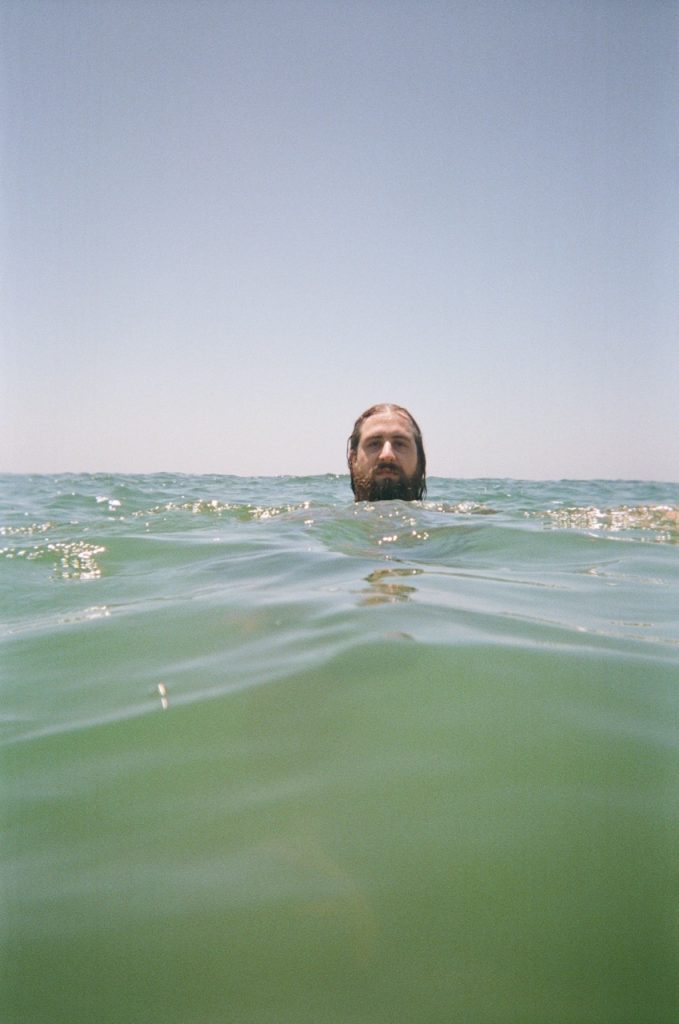
Duets | Golden Gate Bridge is a very minimal approach. For that, I used the GR-300 with an expression pedal and a BOSS ME-70 Guitar Multiple Effects to duet with the droning tones of the Golden Gate Bridge in the wind.
The first sound you hear on André 3000’s New Blue Sun album is a guitar-played sample of his flute turned into chords. I have a record with Surya Botofasina and Carlos Niño called Subtle Movements, and another with Carlos and Idris Ackamoor called Free, Dancing… Both include live sampling and various guitar synthesizers.
Everything we do is free in the sense that it’s totally open for anything to happen at any moment—traditional rhythms or beyond and anywhere in between. It can be oceanic, meaning we move in tempo together, and also separately yet together. How we flow is based on our emotions, presence, and shared realities. We’re highly aware of each other and overlaying things together.
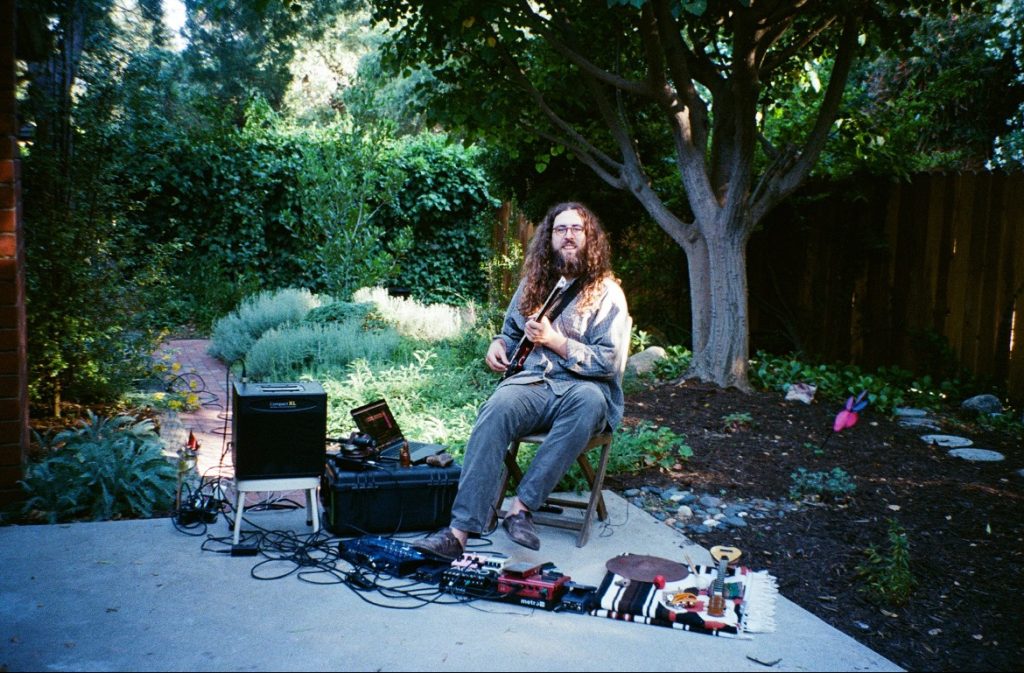
Playing guitar synthesizers has opened me up to a musical expression where we don’t have to be “locked in” to anything. It can free you to express yourself in any way you want. It liberates the guitarist to experiment with sound in many different contexts. It’s endlessly inspiring to work with guitar synthesizers and the expanded realities they make available.
Visit the Nate Mercereau website for more info.



